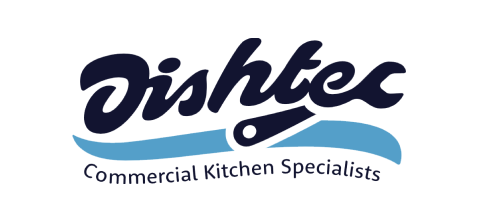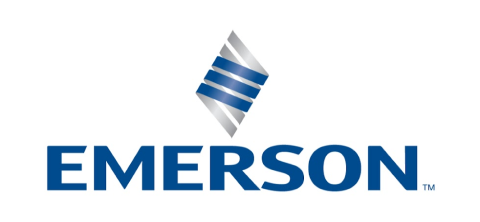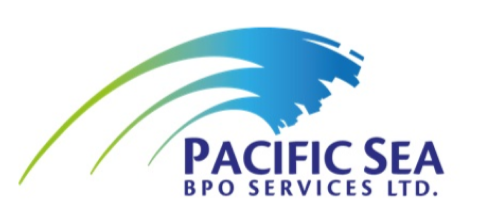As globalization continues to intertwine economies and cultures, proficiency in English has become a critical skill in the professional world. Mastery of English can open doors to new job opportunities, facilitate smoother international collaborations, and increase earning potential.
Investing in English language training can be a strategic career move that can yield significant returns to your professional and personal endeavors.

How Important is English Proficiency
English serves as the common language bridging different cultures, countries, and industries. It is the primary language of business, science, technology, and international diplomacy. Proficiency in English enables professionals to communicate effectively in diverse settings, access a wealth of information, and participate in global networks.
Global Business Communication
English is the de facto language of international business. English is the dominant language in 85% of international organizations, highlighting its role as a vital tool for communication across borders.
This dominance is not accidental; it is driven by the need for a common language to facilitate clear and effective communication in global transactions. Proficiency in English enables professionals to participate in global conversations, collaborate with international colleagues, and access a broader range of opportunities.
For instance, multinational companies often require English proficiency as a prerequisite for many positions, recognizing that effective communication is crucial for successful business operations.
Furthermore, as the digital age progresses, English remains the primary language of the internet, with a significant portion of online content being produced in English. This trend underscores the importance of English in accessing and sharing information globally.
The ability to communicate in English can therefore significantly enhance your ability to engage with a global audience, making you a more competitive candidate in the job market.
Enhanced Career Prospects
English proficiency can significantly enhance your career prospects. Employees with strong English skills are more likely to secure higher-paying jobs and promotions.
This correlation is not surprising, as employers value the ability to communicate effectively in English, which often correlates with higher productivity and better teamwork.
For example, in multinational corporations, English-speaking employees can effectively coordinate with international branches, clients, and partners, leading to more efficient and productive business operations.
Additionally, many leadership roles require strong English skills, as leaders must communicate strategies, goals, and feedback clearly to diverse teams. This requirement makes English proficiency a critical skill for career advancement.
Moreover, in fields such as technology, finance, and healthcare, English is often the language of the latest research and industry developments. Being proficient in English allows professionals to stay updated with industry trends and advancements, further enhancing their career prospects.
Quantifying the ROI of English Language Training
Understanding the return on investment (ROI) for English language training involves analyzing various measurable benefits that such training can bring to your career. These benefits are not only financial but also encompass career advancement, job security, and overall productivity.
Increased Earning Potential
One of the most direct indicators of ROI in language training is increased earning potential. Research indicates that individuals who are proficient in English earn, on average, 30% more than their non-proficient counterparts.
This wage premium is particularly pronounced in industries such as finance, technology, and healthcare, where English is often the primary language of communication. For instance, in the finance sector, English proficiency enables professionals to engage with global markets and clients, making them more valuable to employers.
Similarly, in the technology sector, where many companies operate on an international scale, English-speaking employees can effectively collaborate on global projects, leading to higher compensation.
The healthcare sector also sees a significant wage premium for English proficiency, as medical professionals who can communicate effectively in English are better equipped to collaborate on international research and provide care to diverse patient populations. This increased earning potential highlights the tangible financial benefits of investing in English language training.
Career Advancement and Job Security
Investing in English language training can also lead to greater job security and career advancement. Companies prioritize employees who can communicate effectively in English, as it reduces the risk of miscommunication and errors.
According to a survey, 92% of executives reported that English proficiency is important for their company’s success, and 89% stated that employees who improve their English skills have better career opportunities.
This trend is evident in various industries, where English-speaking employees are often considered for leadership roles and international assignments. Additionally, English proficiency can provide job security by making employees more versatile and adaptable.
In times of economic uncertainty or organizational changes, employees who can communicate effectively in English are more likely to retain their positions and be considered for new roles. This stability is particularly valuable in competitive job markets, where language skills can distinguish candidates from their peers.
Improved Performance and Productivity
Enhanced English skills can improve overall job performance and productivity. Effective communication is crucial for successful project management, client interactions, and teamwork.
A study found that companies with employees proficient in English experienced a 30% increase in productivity. This improvement is attributed to clearer communication, reduced misunderstandings, and more efficient collaboration.
For instance, in project management, English-speaking team members can clearly articulate project goals, timelines, and deliverables, ensuring that everyone is on the same page. In client interactions, the ability to communicate effectively in English can build trust and rapport, leading to stronger business relationships and better outcomes.
Moreover, in team settings, English proficiency facilitates smoother collaboration, as team members can share ideas and feedback more effectively. These benefits underscore the impact of English language training on job performance and productivity.
Long-Term Career Benefits
Investing in English language training offers not only immediate advantages but also significant long-term career benefits. Proficiency in English can be a game-changer, opening up opportunities that might otherwise be inaccessible.
Access to Global Opportunities
Proficiency in English opens doors to global opportunities that might otherwise be inaccessible. Multinational companies and international organizations often require employees to have strong English skills.
For instance, professionals with English proficiency can apply for positions in international branches of their companies, participate in global conferences, and engage with international clients. This access to global opportunities can significantly enhance career growth and professional development.
Additionally, English proficiency can facilitate international relocations and expatriate assignments, providing unique career experiences and opportunities for personal growth.
Networking and Professional Relationships
English proficiency can enhance your ability to network and build professional relationships. Attending international conferences, participating in global forums, and engaging with colleagues from different countries become more feasible with strong English skills. This expanded network can lead to new career opportunities, partnerships, and collaborations.
For example, professionals who can communicate effectively in English can connect with industry leaders and experts, gaining valuable insights and knowledge. These connections can also lead to collaborative projects and business ventures, further enhancing career prospects.
Additionally, English proficiency can facilitate mentorship opportunities, allowing professionals to learn from and be guided by experienced mentors in their field.
Personal and Professional Development
Investing in English language training contributes to both personal and professional development. It enhances cognitive skills, such as problem-solving and critical thinking, which are transferable to various aspects of life and work.
Research has shown that learning a new language can improve memory, multitasking abilities, and decision-making skills. Moreover, learning a new language fosters cultural awareness and empathy, essential qualities in today’s diverse work environment.
Understanding and appreciating different cultures can enhance interpersonal relationships and collaboration in multicultural teams. Additionally, English proficiency can boost confidence and self-esteem, as individuals feel more capable and competent in their communication abilities. This confidence can translate into greater professional assertiveness and leadership potential.
Practical Steps to Maximize ROI
To truly benefit from investing in English language training, it is crucial to approach the process strategically.
Choosing the Right Training Program
To maximize the ROI of English language training, it is crucial to select a program that aligns with your career goals and learning style. Consider programs that offer industry-specific vocabulary and scenarios, as these will be directly applicable to your professional context.
Online platforms offer flexible and comprehensive courses tailored to various proficiency levels and professional needs. Additionally, look for programs that provide opportunities for practical application, such as conversation practice and real-world exercises.
These practical components can enhance learning and ensure that you can apply your skills in your professional life. Evaluating the credentials and experience of instructors can also help ensure the quality of the training program.
Continuous Learning and Practice
Language learning is an ongoing process. To sustain and enhance your English skills, engage in continuous learning and practice. This can include reading industry-related materials, participating in language exchange programs, and using language learning apps. Consistent practice helps reinforce learning and ensures that skills remain sharp.
Additionally, seeking feedback from peers and mentors can provide valuable insights and help identify areas for improvement. Engaging in English-speaking environments, such as attending workshops and networking events, can also provide opportunities for practical application and further development.
Setting specific learning goals and tracking progress can help maintain motivation and ensure continuous improvement.
Leveraging Employer-Sponsored Training
Many companies recognize the value of English proficiency and offer language training as part of their employee development programs. Take advantage of these opportunities if available, as they provide structured learning and may cover the cost of training.
Employer-sponsored training programs often include tailored content that aligns with the company’s needs and industry requirements, making the training more relevant and practical.
Additionally, participating in company-sponsored training can demonstrate your commitment to professional development and enhance your standing within the organization. Collaborating with colleagues who are also participating in the training can create a supportive learning environment and further enhance the learning experience.

Achieve Career Success Through English Mastery
The ROI of investing in English language training for your career is multifaceted, encompassing increased earning potential, enhanced career prospects, and improved job performance.
As the global economy becomes increasingly interconnected, proficiency in English is a critical asset that can open doors to numerous professional opportunities. By choosing the right training program, engaging in continuous learning, and leveraging employer-sponsored training, you can maximize the benefits and ensure a significant return on your investment.
Whether you aim to advance in your current role, seek new opportunities, or enhance your personal and professional development, English language training is a valuable investment in your future success.
At American English Skills Development Center Inc., we are dedicated to helping you achieve your language learning goals with our comprehensive and personalized English courses. Our expert instructors provide tailored guidance to ensure you gain the skills needed to excel in your career. Enroll in any of our classes to start mastering business English today.





















